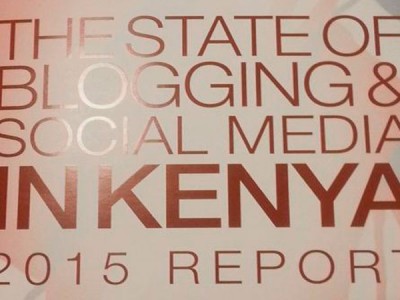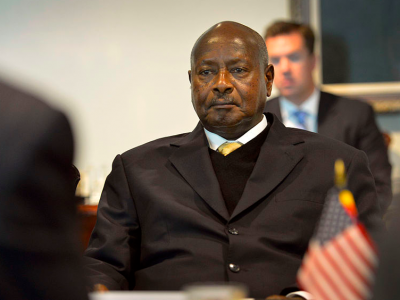Stories about Censorship from June, 2015
Kenyan Blogger Defamation Case Highlights the Need for Education
Shitemi Khamadi argues that a case where a telecommunication provider, Safaricom, has sued a Kenyan blogger Cyprian Nyakundi for defamation highlights the need for education on the law and Internet in Kenya: The Bloggers Association of Kenya (BAKE) in whose mandate is to promote online local content has been running...
Who Are the 5.5 Million Facebook Fans of Chinese State Newspaper People's Daily?
Communist party mouthpiece People's Daily has millions of likes on Facebook, a social media platform that is blocked in China. Chinese netizens are wondering who those fans are.
Girl Group Goes Head-to-Head With Japanese Prime Minister Over Reinterpreting Constitution
A Japanese girl group's clash with municipal government highlights increasingly vocal opposition to Prime Minister Shinzo Abe's government.
Russia Bans the Internet Archive's ‘Wayback Machine’
The Russian government has blocked the Internet Archive, the San-Francisco-based website that provides the popular Wayback Machine, which allows users to view archived webpages.
Arrested for Criticizing a Former Prime Minister, Singaporean Teen Blogger Amos Yee is Now Being Evaluated for Autism
The 16-y/o blogger who criticized Lee Kuan Yew was suggested to be suffering from autism spectrum disorder, and the judge ruled him to be remanded for another two weeks to assess his suitability for Mandatory Treatment Order.
Social Media Analysis: How an Iranian Kurdish Woman's Death Triggered a Regional Social Media Conflict
Social media controversy following the accidental death of a hotel chambermaid underscored systemic discrimination ethnic minorities face in Iran and the emerging role of Internet censorship in this milieu.
Iranian Journalist Ahmad Zeidabadi Sent Into Exile After Six Years in Prison
Zeidabadi, who worked for reformist newspapers, was convicted in 2009 of “propaganda against the state,” “assembly and collusion to create riots after the presidential election,” and “insulting the Supreme Leader.”
No More Internet: Website Models Effect Of ‘Right to Be Forgotten’ on Russian Search Engines
A new website created by Russian advertising executives asks Russian users to imagine what search engines will look like in 2018—if the “right to be forgotten” bill becomes law.
WikiLeaks to Publish 500,000 Leaked Documents the Saudi Government Doesn't Want its Citizens to See
The Saudi government is not pleased and has reached out to its citizens to ignore the cache, waving it off as the malicious work of "enemies of the nation."
Infographic Shows Thailand Junta Arrested Hundreds in the Past Year for Criticizing the Government
The free speech advocate iLaw uploaded an infographic which showed that 166 people have been arrested in the past year in Thailand for expressing an opinion against the military-backed government. The army grabbed power in May 2014 but it vowed to restore civilian rule and conduct free elections next year....
Long After the African Union’s Golden Jubilee: A Letter to Jailed Blogger Natnael Feleke
"I think of your particular fate and wonder how any of us who are free continue to go about our lives as if there’s nothing to lose."
Singaporean Teenage Video Blogger Sent to ‘Rehabilitation’ For Offensive YouTube Video
According to Amnesty International, the 16-year old Amos Yee is the youngest prisoner of conscience in the world today.
The State of Blogging and Social Media in Kenya Today
BAKE, the author of a new report, represents a group of Kenyan online-content creators and seeks to empower innovation and improve the quality of content created on the Web.
Russian Censor Says It's High Time the Country Developed Its Own Messenger App
Russian officials bemoan the lack of control and access to user data in foreign text messaging apps as a threat to "national security."
Self-Proclaimed ‘Donetsk People's Republic’ Now Has an Internet Blacklist
A new law in the rebel eastern Ukraine state instituting a blacklist for webpages with content "prohibited in the republic" seems to be targeting Ukrainian media websites.
Is the Kremlin Watering Down Russia's ‘Right to Be Forgotten’?
Kremlin officials and Yandex reportedly reached a compromise that will weaken the next draft of legislation designed to introduce to the RuNet a "right to be forgotten."
Russian Lawmakers Vote to Support First Draft of ‘Right to Be Forgotten’ Law
Only one Russian lawmaker voted against the new draft law, with other members of parliament overwhelmingly supporting the "right to be forgotten" regulations for search engines.
Arbitrary Arrests, Cybercrime, and Mass Mobile Adoption: Monitoring Digital Rights in Sub-Saharan Africa
Global Voices speaks to Tom Rhodes, the East Africa representative for the Committee to Protect Journalists, about the state of freedom of expression online in Sub-Saharan Africa.
Ugandan Authorities Jail Facebook User for “Offensive” Comments About President Musveni
Robert Shaka, a Ugandan IT specialist, is in jail for allegedly running the controversial TVO-Uganda Facebook page which is critical of Ugandan government.
Hong Kong Social Media Activists Under Fire as Key Electoral Policy Vote Approaches
Local legal experts suspect that authorities are exploiting Hong Kong's cybercrime laws in an effort to suppress political speech online.
Russia Moves Forward on ‘Right to be Forgotten’ Bill Despite Industry Protests
Lawmakers insist on adopting the new legislation that would require search engines in Russia to delete links to information and content online based on user requests.





















